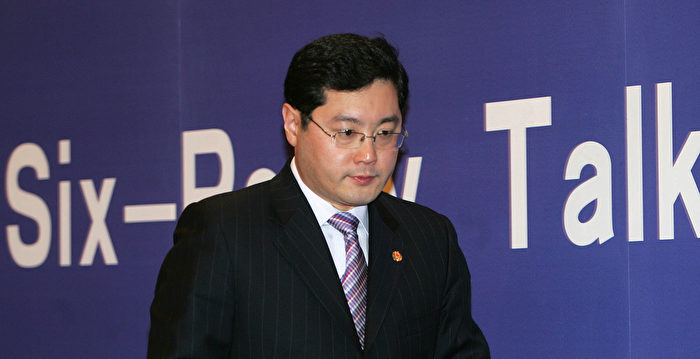[Epoch Times, July 31, 2021]On July 28, Qin Gang, the new CCP’s ambassador to the United States, arrived in the United States in a low-key manner. According to reports, the US State Department did not send any officials to greet Qin Gang at the airport. Outsiders believe that Sino-US relations are still tense.
On July 26, the Sino-US diplomatic talks ended in Tianjin. On the 27th, many media reported that Qin Gang took a plane to the United States at Shanghai Pudong Airport. It was exactly the second day after the Sino-US Tianjin talks ended. This is naturally not a coincidence.
The website of the Chinese Embassy in the United States issued a document on July 28 stating that on the 28th, the new Chinese ambassador to the United States, Qin Gang, arrived in the United States to take up his post. Qin Gang is the 11th CCP’s ambassador to the United States, and was formerly the CCP’s Deputy Foreign Minister in the United States.
Hong Kong’s South China Morning Post reported on July 29 that since Qin Gang’s predecessor, Cui Tiankai, began to appear in April 2013, the degree of deterioration in Sino-US relations can be seen. When Qin Gang arrived in Washington, no US State Department official was present to greet him.
The report said that by contrast, Cui Tiankai was received by a U.S. diplomat when he arrived in the U.S. and was invited to submit a copy of his credentials to the then U.S. Secretary of State John Kerry the next day.
The report quoted Beijing Language and Culture University College Professor Huang Jing as saying, “Qin Gang’s mission is to lead the way for the political minefield of bilateral relations without creating new problems. He will need to meet the challenge, because the biggest obstacle to the US-China relationship seems to be. It will last a long time.”
The New York Times reported on July 28 that Qin Gang’s past record of actively criticizing the West shows that Beijing is preparing for continued tension with Washington.
The report believes that Qin Gang, who has assumed the new position, will be at the forefront of Xi Jinping’s efforts to reshape Sino-US relations. At present, Sino-US relations have fallen to their lowest point in decades.
Qin Gang has served in the Chinese Communist Party’s diplomatic system for more than 30 years. He served as the spokesperson of the Ministry of Foreign Affairs twice and was stationed in the UK three times. In recent years, he has accompanied Xi Jinping on many visits and meetings with foreign leaders, winning Xi Jinping’s trust.
National Public Radio (NPR) reported on July 28 that as a former spokesperson for the Ministry of Foreign Affairs, Qin Gang had repeatedly sneered and was one of the “founders” of the arrogant attitude of the Chinese Ministry of Foreign Affairs. And now Zhao Lijian and others are just following Qin Gang’s footsteps.
During his two servings as the spokesperson of the Ministry of Foreign Affairs, he became famous for responding sharply to foreign media and foreign diplomats. When he stepped down as his second spokesperson in 2014, the Chinese Communist Party media praised him as a spokesperson who “likes to counter foreign media reporters.”
With the ossification of Sino-US relations, the diplomacy between the two countries is in a vacuum. Former US ambassador to China Terry Branstad left Beijing before the US election last November. Currently, the Biden administration has not announced an ambassador to China.
Current political commentator Yang Wei said that Qin Gang’s low-key visit to the United States indicated the extremely low ebb in Sino-US relations, and the CCP also uncovered the weaknesses behind war wolf diplomacy.
Editor in charge: Xu Menger
.
